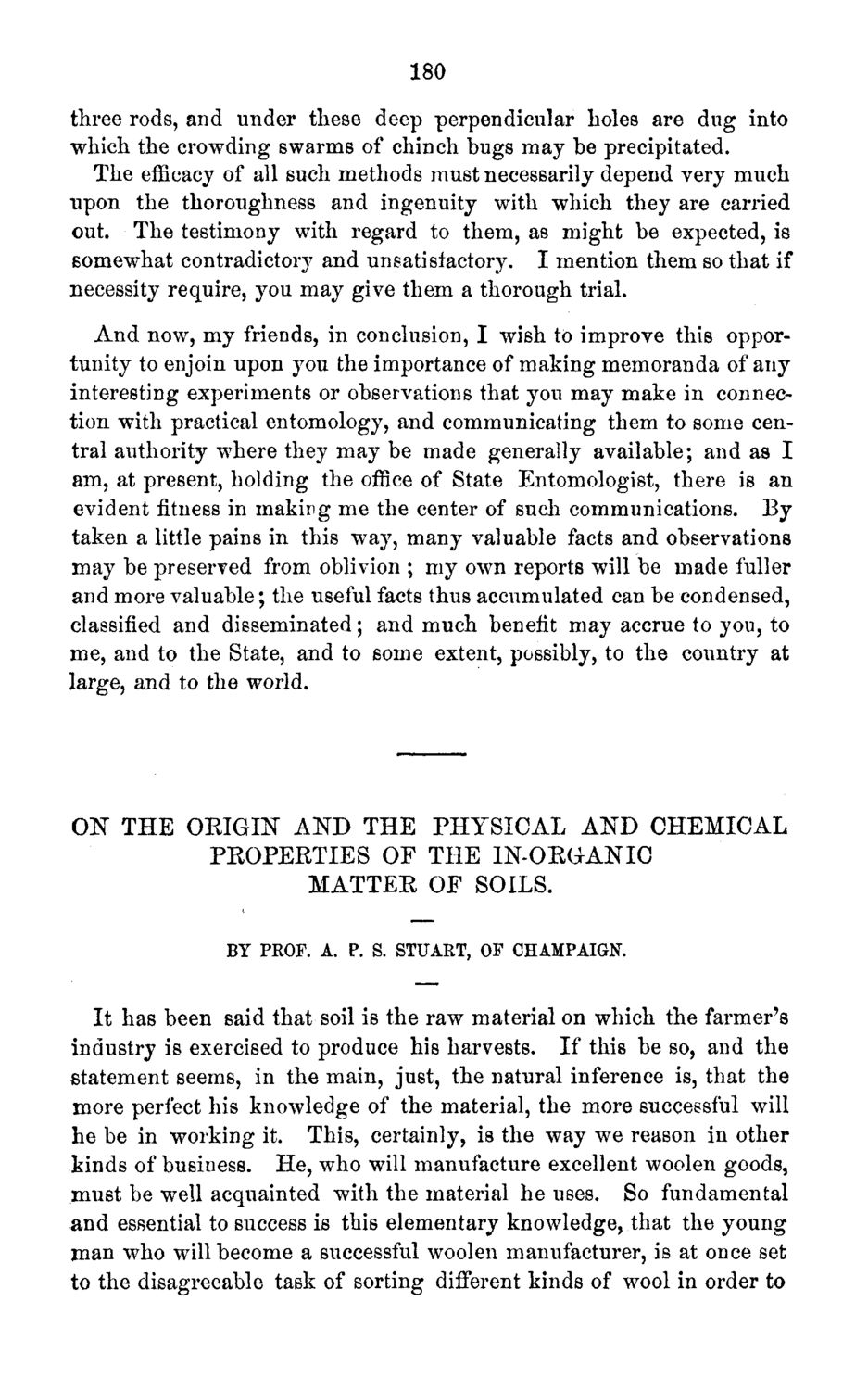| |
| |
Caption: Board of Trustees Minutes - 1871
This is a reduced-resolution page image for fast online browsing.

EXTRACTED TEXT FROM PAGE:
180 three rods, and under these deep perpendicular holes are dug into which the crowding swarms of chinch bugs may be precipitated. The efficacy of all such methods must necessarily depend very much upon the thoroughness and ingenuity with which they are carried out. The testimony with regard to them, as might be expected, is somewhat contradictory and unsatisfactory. I mention them so that if necessity require, you may give them a thorough trial. And now, my friends, in conclusion, I wish to improve this opportunity to enjoin upon you the importance of making memoranda of any interesting experiments or observations that you may make in connection with practical entomology, and communicating them to some central authority where they may be made generally available; and as I am, at present, holding the office of State Entomologist, there is an evident fitness in making me the center of such communications. By taken a little pains in this way, many valuable facts and observations may be preserved from oblivion ; my own reports will be made fuller and more valuable; the useful facts thus accumulated can be condensed, classified and disseminated; and much benefit may accrue to you, to me, and to the State, and to some extent, possibly, to the country at large, and to the world. O N T H E ORIGIN A N D T H E P H Y S I C A L A N D CHEMICAL PROPERTIES OF THE I N O R G A N I C M A T T E R OF SOILS. BY PROF. A. P. S. STUART, OF CHAMPAIGN. It has been said that soil is the raw material on which the farmer's industry is exercised to produce his harvests. If this be so, and the statement seems, in the main, just, the natural inference is, that the more perfect his knowledge of the material, the more successful will he be in working it. This, certainly, is the way we reason in other kinds of business. He, who will manufacture excellent woolen goods, must be well acquainted with the material he uses. So fundamental and essential to success is this elementary knowledge, that the young man who will become a successful woolen manufacturer, is at once set to the disagreeable task of sorting different kinds of wool in order to
| |